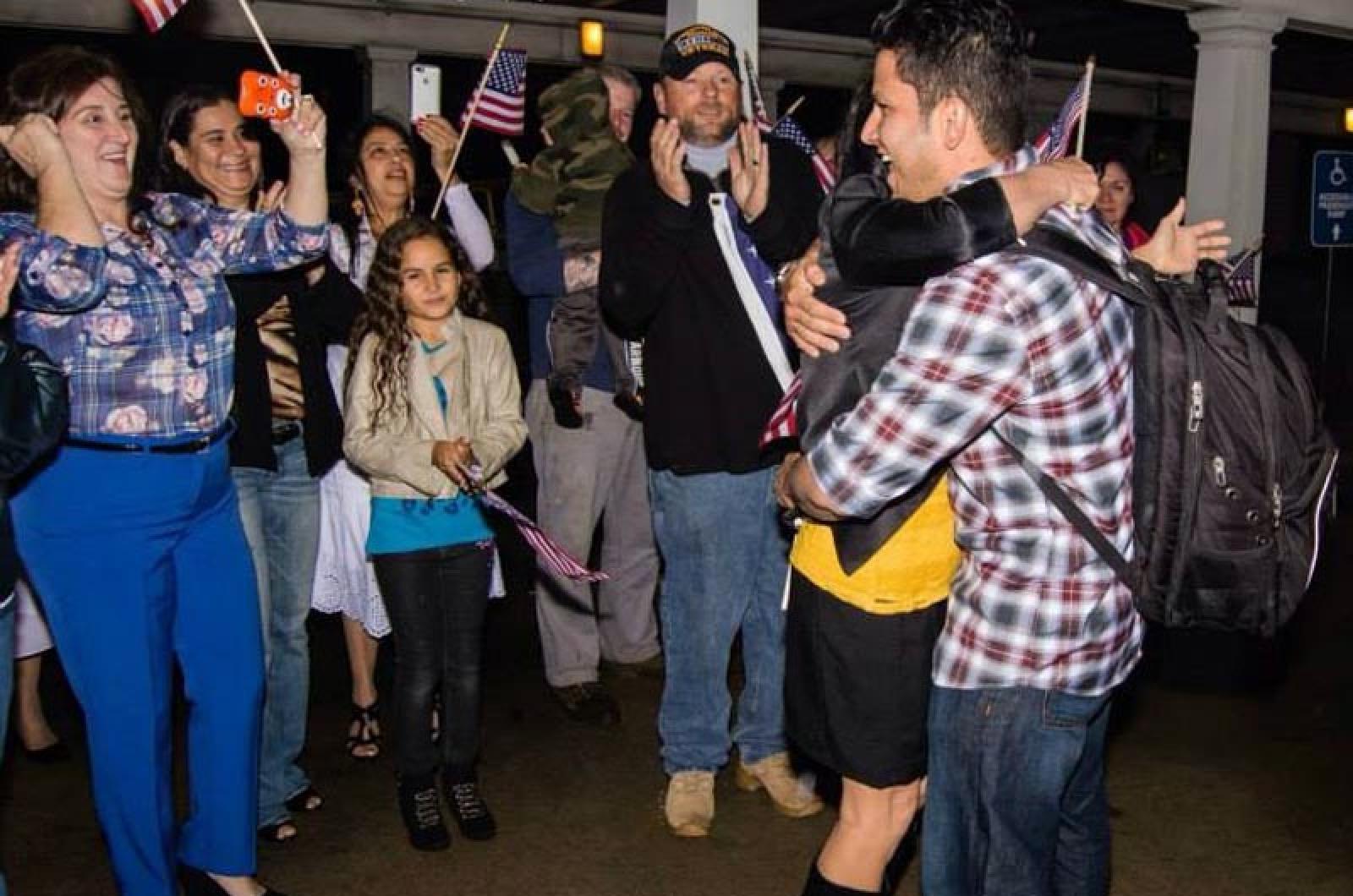During the nine months Army pilot Wender Ramos was deployed in Afghanistan, he flew Black Hawk helicopters around the eastern part of the country.
Compared to the Vineyard, where he spent most of his childhood, Mr. Ramos said life in Afghanistan was of course much more dangerous. But unlike other soldiers who were on the ground driving Humvees vulnerable to enemy fire, Mr. Ramos felt relatively safe in the air. He said his main concerns during his time abroad were different: homesickness and boredom.
Early this month, Mr. Ramos, 32, arrived in Vineyard Haven to great fanfare. An entourage of greeters met him at the ferry; sirens blared and people cheered. When Mr. Ramos got off the boat and saw the crowd, it didn’t occur to him they had gathered in his honor.
“I had no clue,” he said by phone recently.
Mr. Ramos was born in Minas Gerais, the second most populous state in Brazil. He came to the Island as a child, attending the Edgartown School and graduating from the regional high school in 1999. His mother, a former cleaner at the hospital, now works as a house cleaner.
He obtained his U.S. citizenship while he was in the Army. “I would have received it within two years from when I enlisted regardless,” he said. “The Army only sped up the process. So while not a sole motivator, it was a nice benefit. I joined to serve and fly.”
In Afghanistan, Mr. Ramos was based at Forward Operating Base Shank. Though his unit was technically an air assault unit, most of his tasks as a pilot were logistical and involved shuttling between military bases in an area called Regional Command East, or RC-East. He’d pick up gear and personnel and bring them to where they needed to go — often only a 10 or 15-minute flight.
A typical shift lasted five hours, leaving a lot of down time that proved tough to fill.
The homesickness set in on long days, Mr. Ramos said, when there wasn’t much work to do.
“There would be nothing going on,” he said. Around the base, there are a few shops, local people selling DVDs, and small restaurants with local food. But the novelty of that outing soon wore off. “How many times can you do that for nine months?” he said.
Mostly, he passed the time watching movies on the television.
“Some days you just want to go for a drive but you can’t,” he said.
Family and friends back home were eleven and a half hours behind, making it difficult to stay in touch.
Mr. Ramos said he communicated mostly on Facebook chat during night shifts when he wasn’t flying. Often, he’d post photographs of himself; that way his family would know he was safe even if they hadn’t heard from him in a few days. He didn’t talk once on the phone during the nine-month deployment.
He did develop strong relationships with his colleagues, who were his constant companions for at least eight hours each day.
Since he’s been home, he’s missed their company, he said.
But Mr. Ramos said he is relieved to be home and pleased to be spending time with friends and family in the next month. Then it’s back to work at Fort Campbell in Tennessee, where he will commence training for the next assignment. “We will just be flying around and keeping proficient,” he said.
He wanted to thank members of the community who welcomed him back to the Island, a group that included the Tisbury fire and police departments, Veterans of Foreign Wars Post 9261, American Legion Post 257, family and friends. Jo Ann Murphy, veteran’s agent for Dukes County, helped coordinate the homecoming celebration.
Mr. Ramos said another sort of homecoming may take place in the near future — he is planning a trip with his sister to Brazil, the first time he will return to his home country since he left.





Comments (1)
Comments
Comment policy »